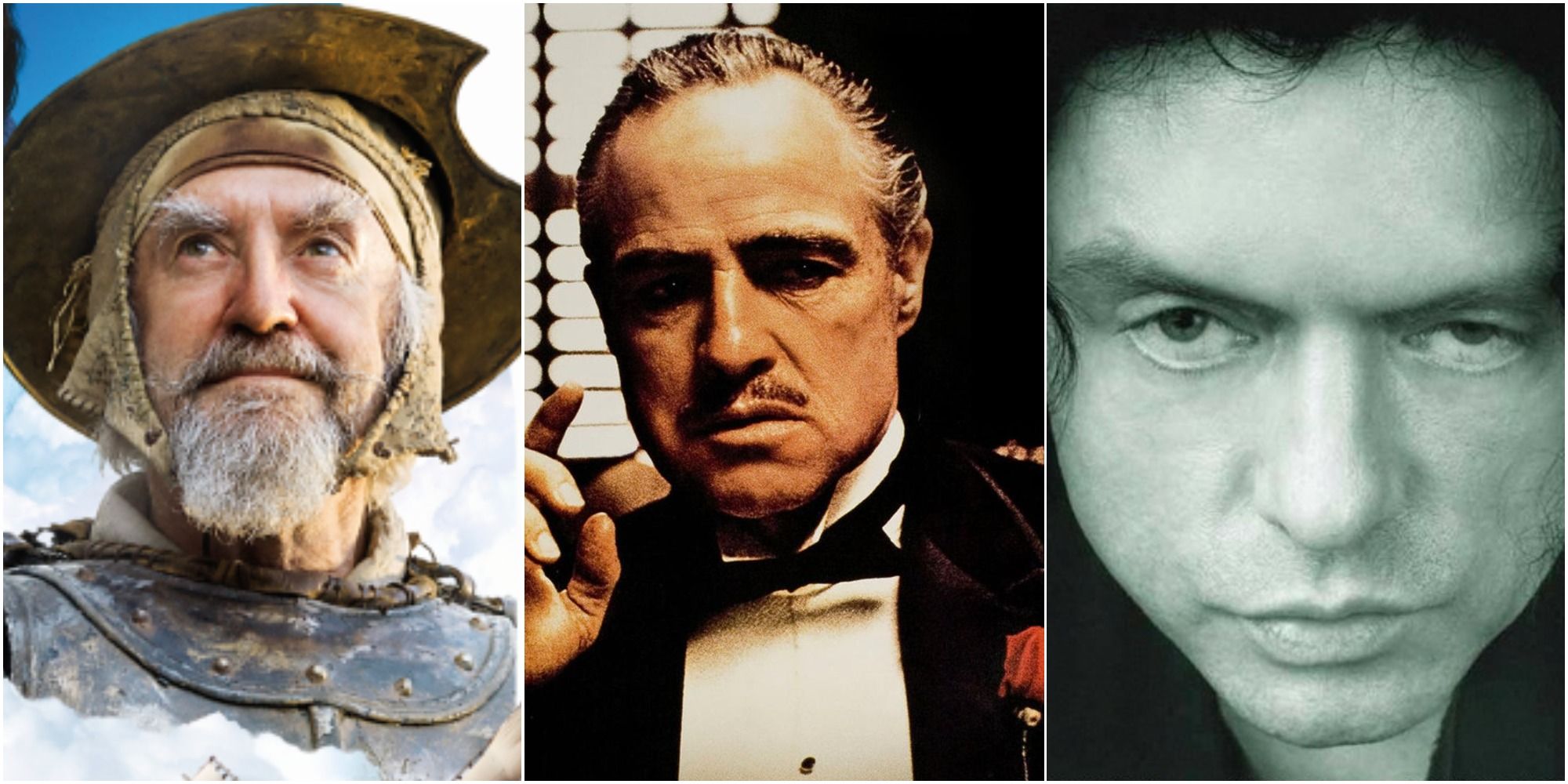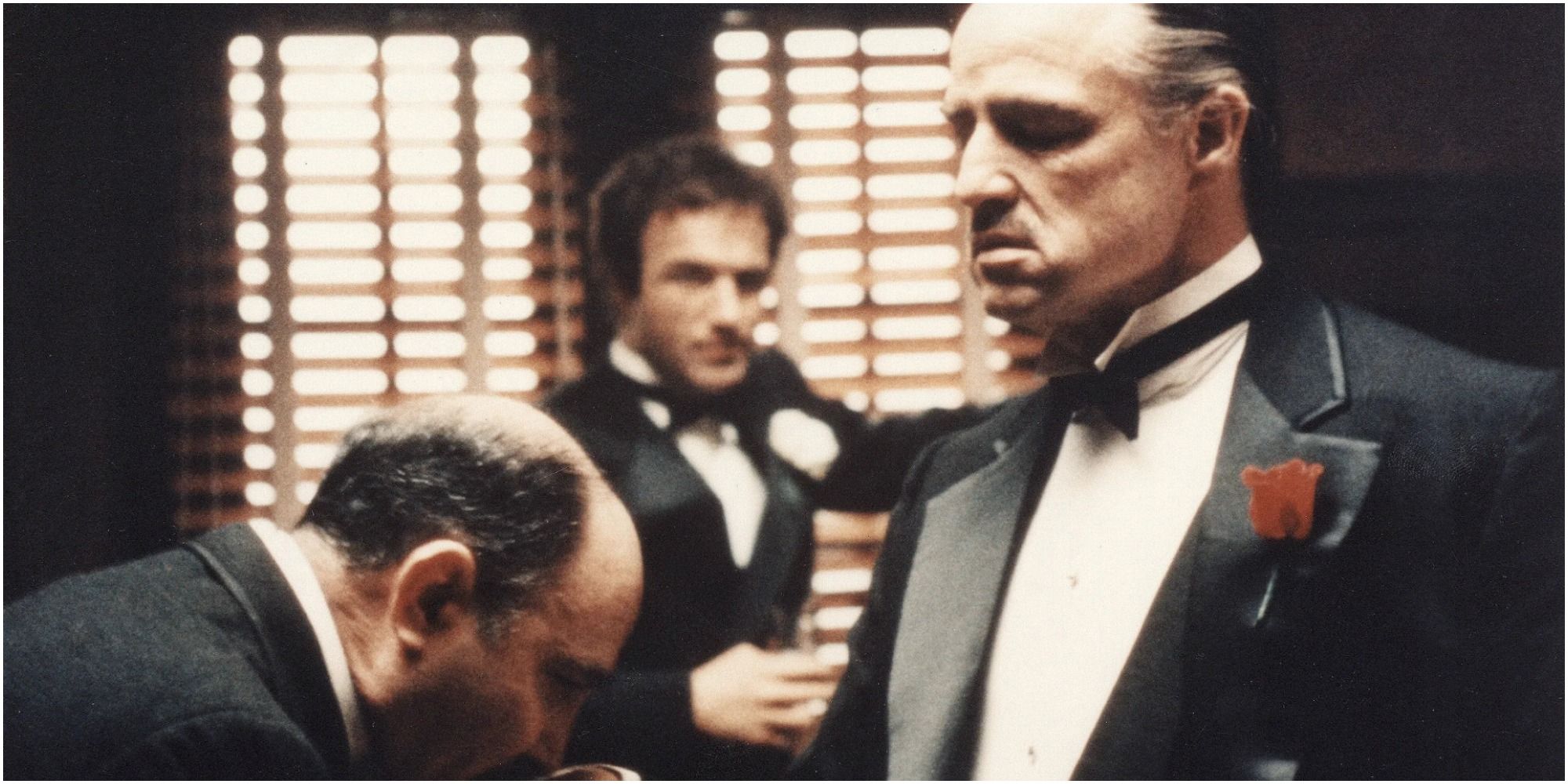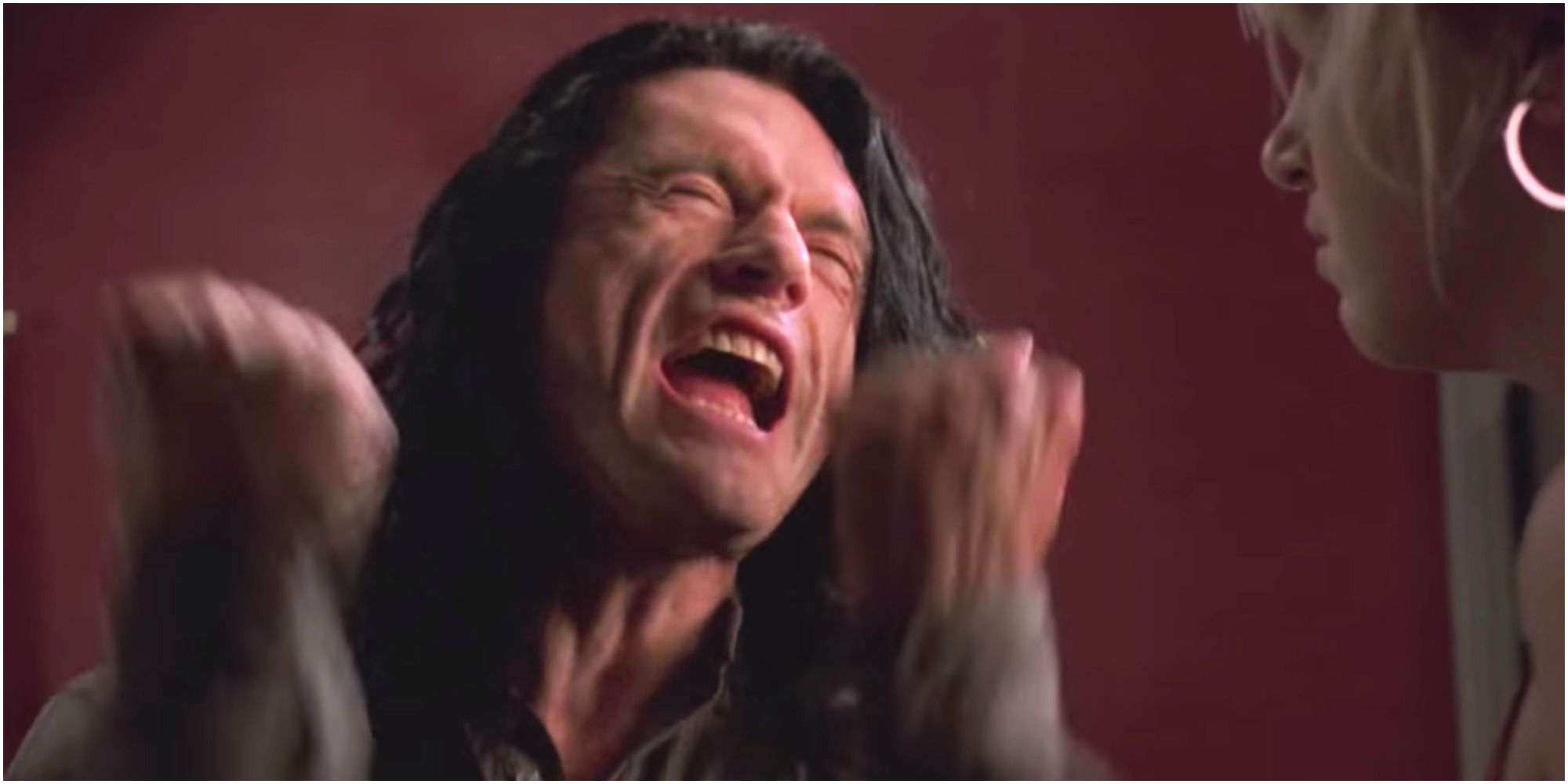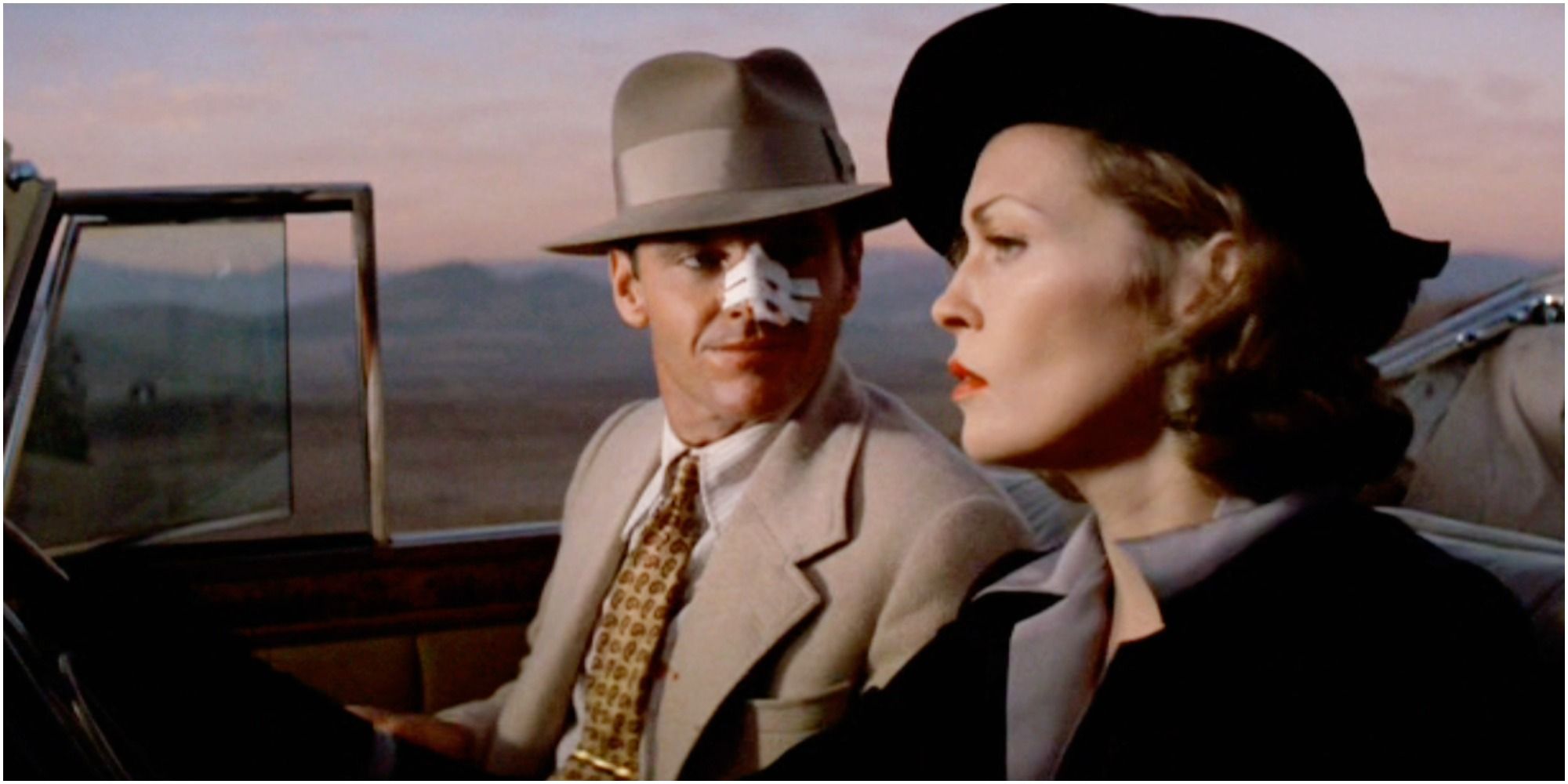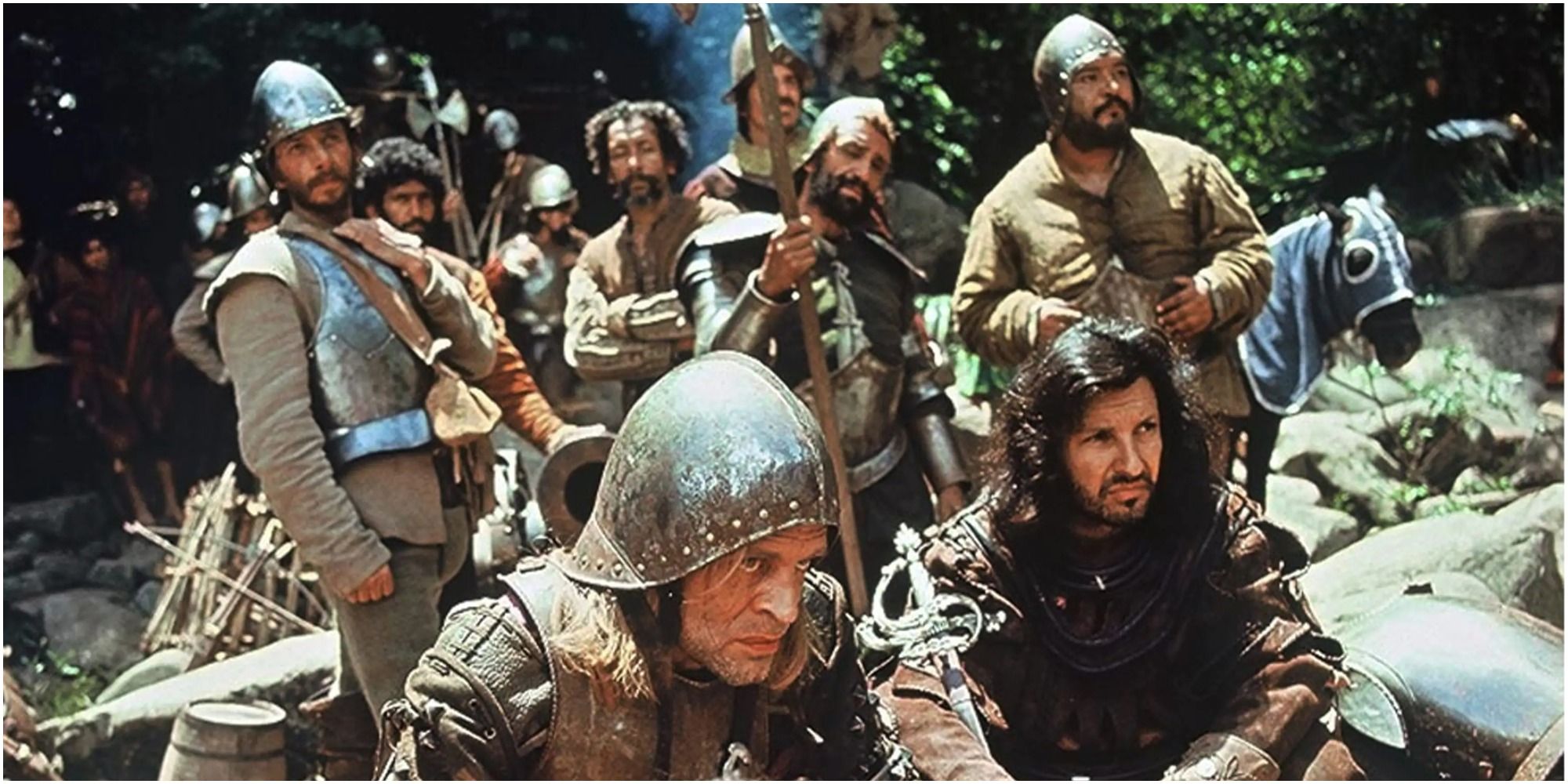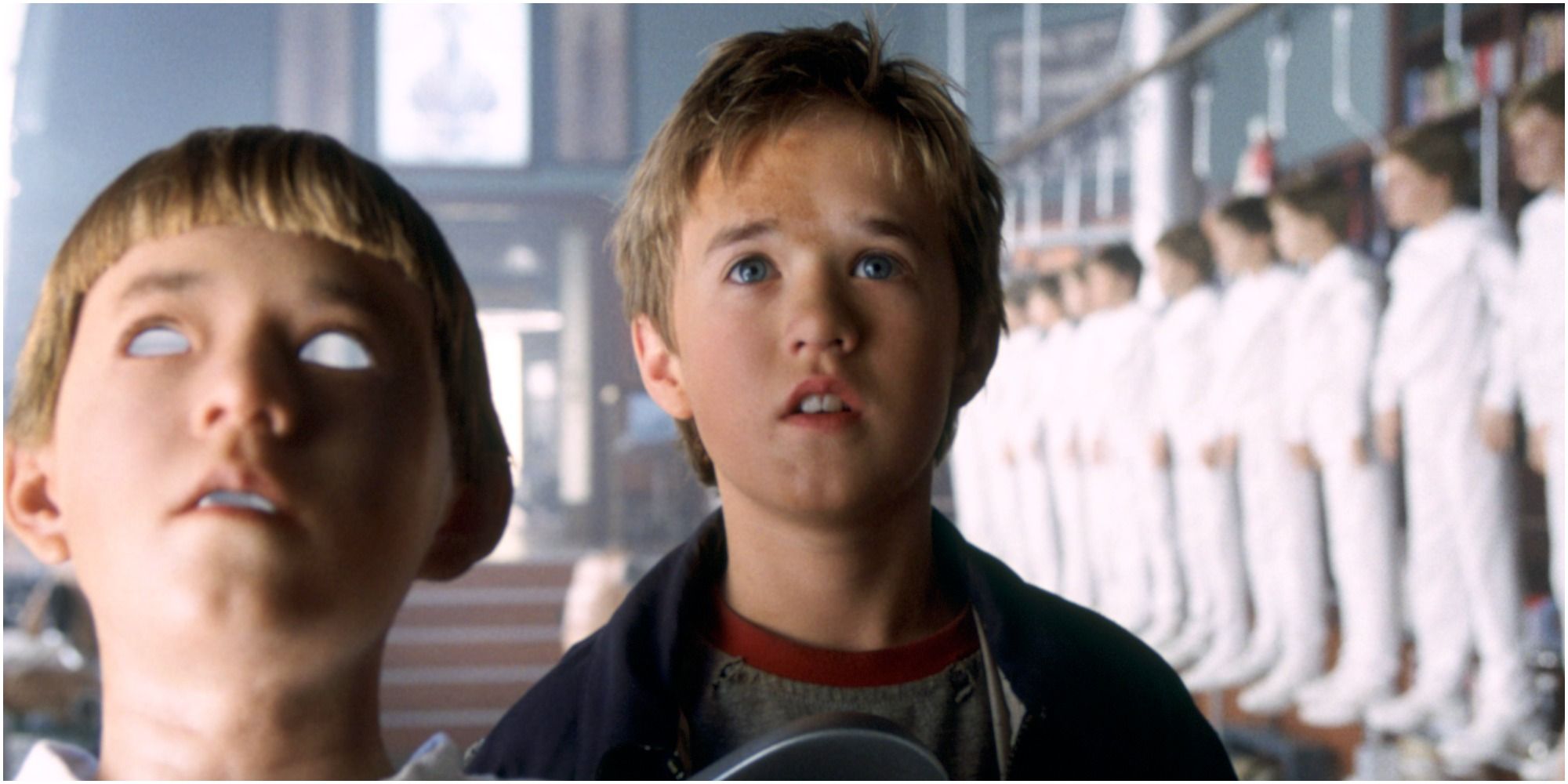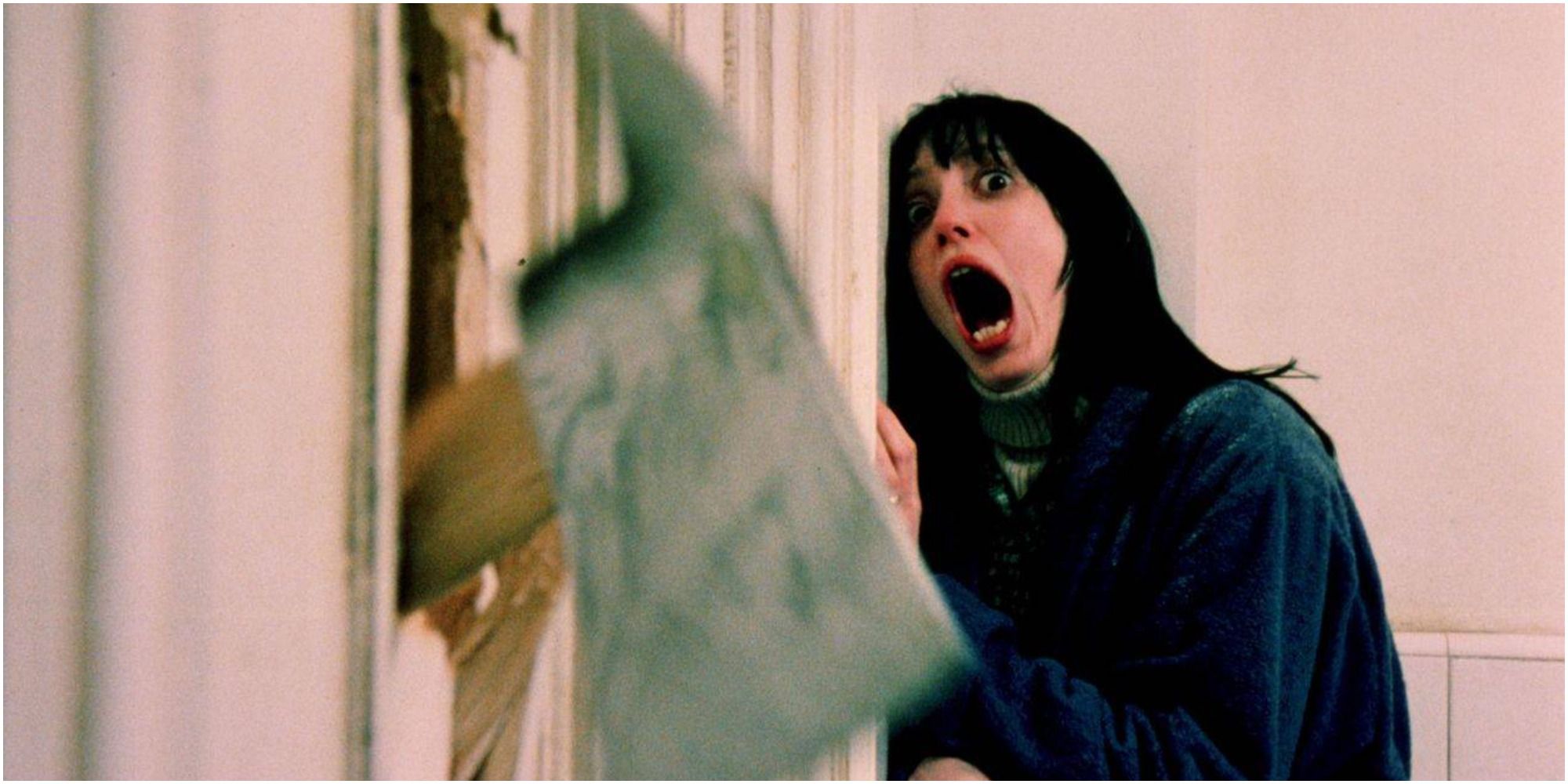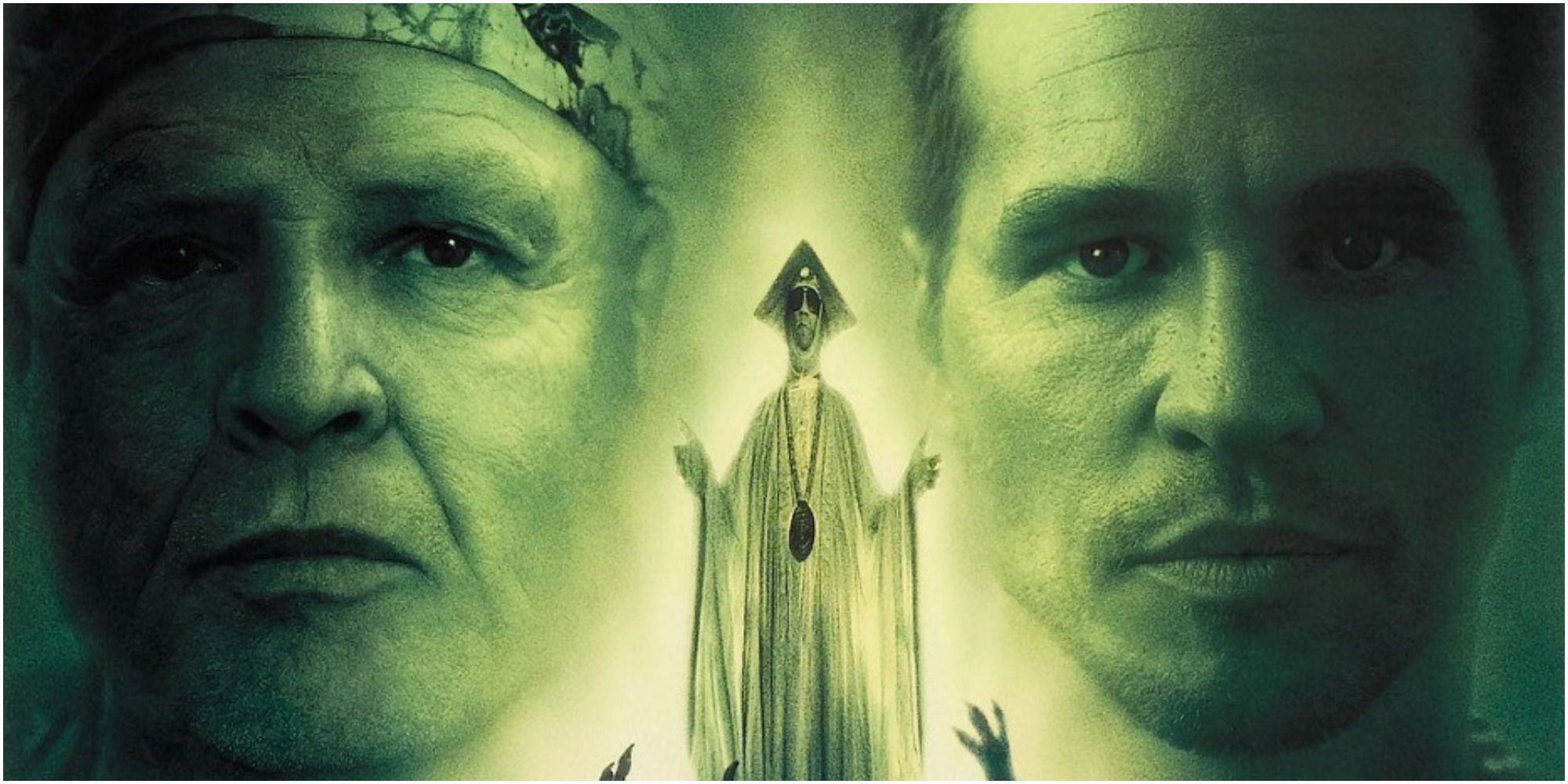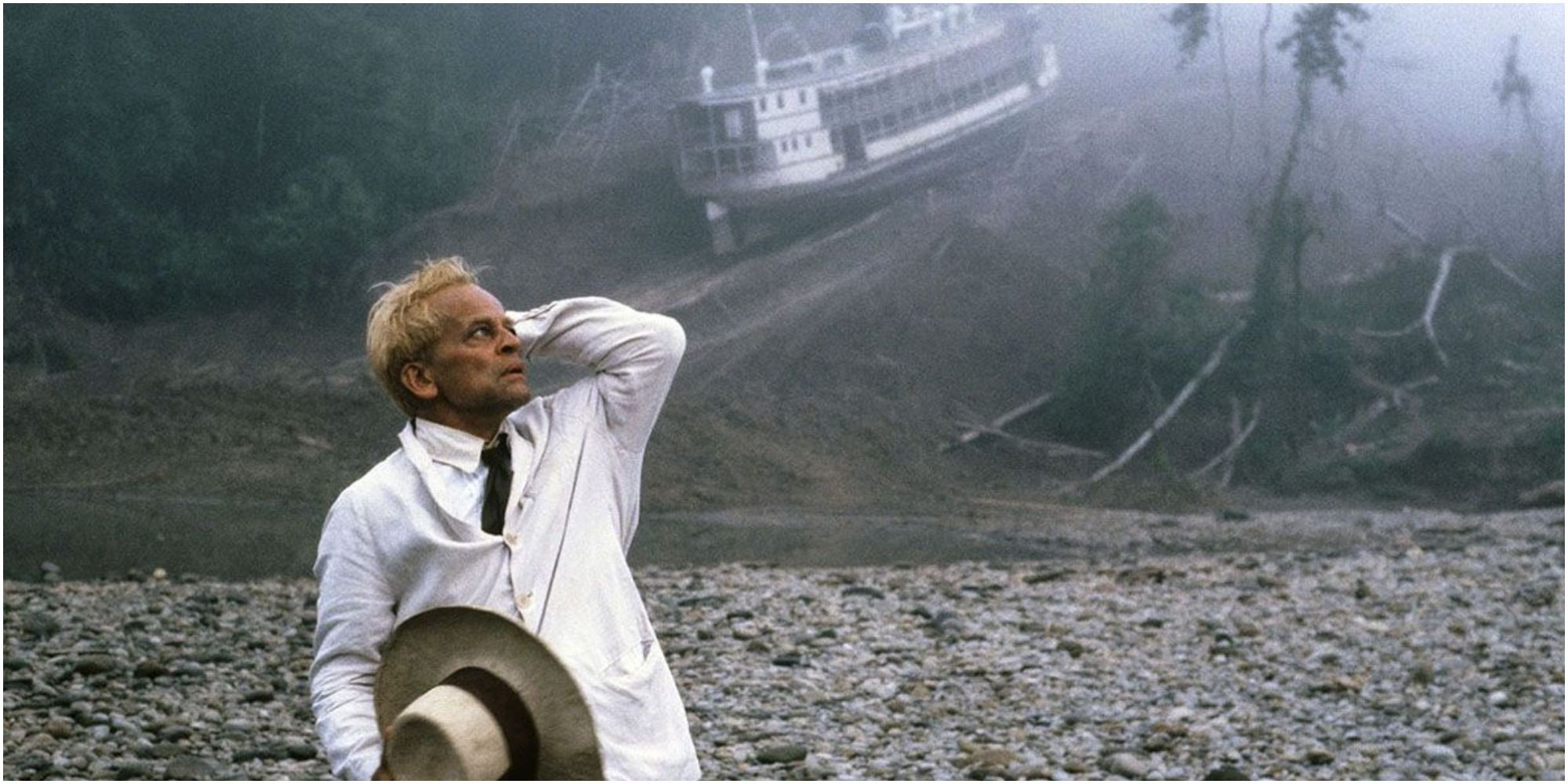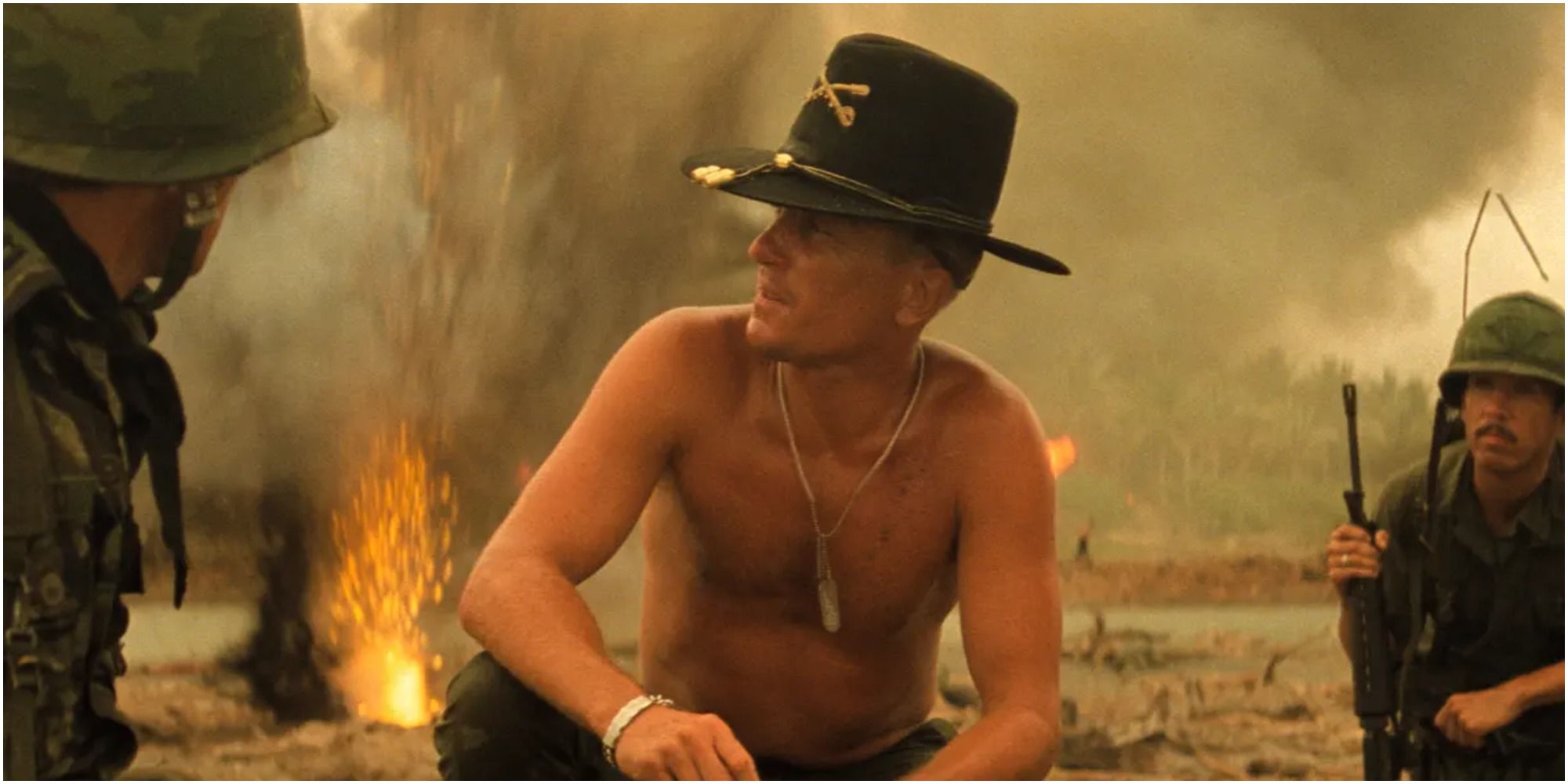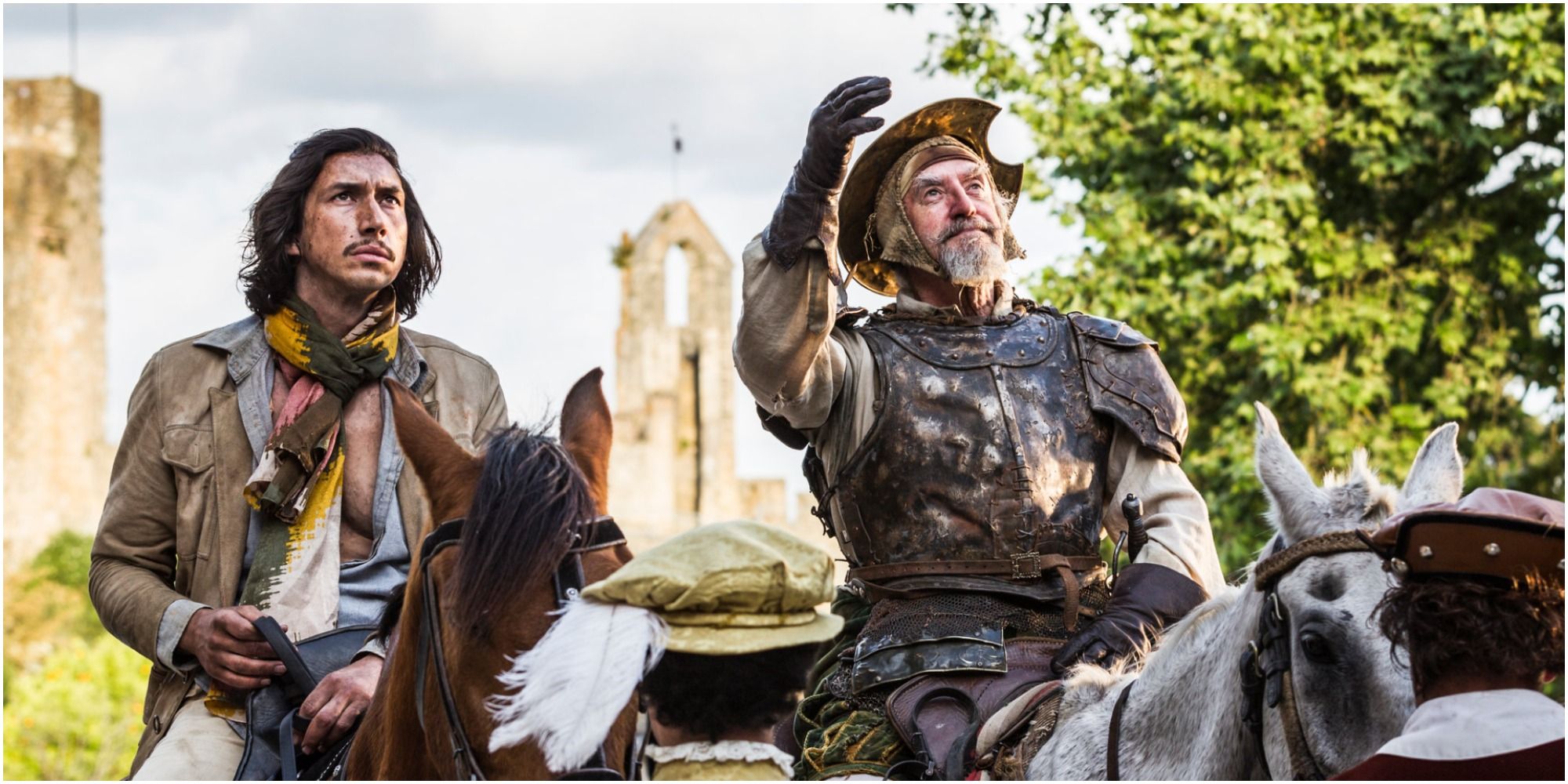The movie-making industry is one of the most fascinating job sectors out there. It's full of passionate creators who make art that touches the lives of millions of people, and defines pop culture.
Sometimes, the story behind the camera is as interesting, if not more, than what happens on screen. Some backstories are so interesting they even become their own movies and TV shows, such as the Paramount+ original series The Offer, dramatizing the story of the making of The Godfather.
The Godfather (1972)
The Godfather is one of the most acclaimed movies of all time. Francis Ford Coppola's adaptation of Mario Puzo's novel provided an authentic look at the life of the Italian mafia. It's that authenticity that proved to be a problem for members of the real-world Italian mob.
After not liking how the book exposed many of the mafia's secrets, the mafia was equally unhappy with the way the movie exposed their way of life. In turn, they employed tactics to try and put a stop to the movie, thankfully to no avail. On top of all that, the production also faced turmoil from the studio, as the producers at Paramount tried to rein in Coppola's vision. Their efforts also proved unsuccessful, as Coppola's masterpiece was released as his intended vision.
The Room (2003)
Tommy Wiseau's The Room is perhaps the best worst movie ever made. Intended to be a hard-hitting, emotional melodrama, instead it is a comedy with hilarious lines of dialogue, baffling performances, and plot lines that somehow make less than 0% sense.
Much like a great movie, it's incredibly difficult to make a movie as bad as The Room. It requires lots of hubris, ambition, and money, and that fully encapsulates the genius of Tommy Wiseau. He wanted to make a movie, so he did. He wrote it himself, directed it himself, starred in the lead role and paid for everything all himself. Where did he get the money to do all this? It's unclear. The incredibly bizarre story behind The Room was recounted by Wiseau's friend and co-star, Greg Sestero, in the book The Disaster Artist, which itself was adaptated into a 2017 dramatized movie starring James Franco as Wiseau.
Chinatown (1974)
Chinatown is a masterpiece. Robert Towne's script is about as close to perfect as you can get, Jack Nicholson, Faye Dunaway and John Huston deliver performances that breathe undeniable life into the movie's Raymond Chandler noir world, and, though his reputation is forever tarnished by his monstrous crimes, Roman Polanski's direction brings the whole movie together. Chinatown is so iconic there's a movie in the works about the making of the movie.
The plot of the movie deals with a conspiracy surrounding Los Angeles' water supply. This takes inspiration from real-life engineer, William Mulholland, who built the Los Angeles Aqueduct. Mulholland's career ended, however, after the St. Francis Dam failed hours after his inspection, causing the deaths of 431 people. Towne used these real life events to craft a story about the power struggle in Los Angeles. One that shows power isn't just about money in LA, it's about control. Control of people and control of resources.
Aguirre, The Wrath Of God (1972)
Werner Herzog is a truly fascinating human being. One moment he will make a documentary about nature's indifference towards man, and the next he will star as the villain in Tom Cruise's Jack Reacher. He loves analyzing WrestleMania, and he thought Baby Yoda was real on the set of The Mandalorian. With all this being said, it shouldn't be surprising then that the way he makes movies is just as charmingly strange as he is.
Aguirre, The Wrath Of God is a historical drama about Don Lope de Aguirre on the search for El Dorado in the 16th century. You would think that writing a movie like this would require extensive research and months to perfect. According to the audio commentary for the Anchor Bay release of the film, Herzog wrote it over the course of two and a half days while on a bus with a football team, who were partying so hard they vomited on several pages of the script which Herzog had to throw out without fully remembering what he had written. Of course, it only makes sense for a Werner Herzog movie that, after being written in such a chaotic environment, the movie opened to critical acclaim, and some consider it his best work.
A.I.: Artificial Intelligence (2001)
A.I.: Artificial Intelligence is a movie that only gets more relevant as time passes. It's about what defines a life, and as artificial intelligence technology continues to progress, the movie's philosophical questions are being asked in the real world.
A.I. had quite the journey to the big screen. Based on the Brian Aldiss short story, "Supertoys Last All Summer Long", the film originally began development when Stanley Kubrick acquired the rights to the story in the 1970s. Unfortunately, the movie found itself trapped in development hell, not moving forward for years. In 1995, Kubrick gave the movie to Steven Spielberg, who finally brought the movie to life, releasing it in 2001. Not many movies have been worked on by two of the greatest filmmakers ever, and while A.I. may not be the crown jewel of either's filmography, it's still a fascinating story.
The Shining (1980)
The Shining may be Stephen King's masterpiece, and even though King hates it, Stanley Kubrick's adaptation may be the auteur filmmaker's masterpiece. The film and book are both truly haunting depictions of going mad. While King didn't have to work with anyone else while writing The Shining, Kubrick had to work with an entire cast and crew of people. In order to get the movie he wanted, Kubrick ran the set with an iron fist.
In a way, life imitated art, with Kubrick driving star Shelley Duvall mad on the set of the movie. His purpose may have been to get a more believable performance out of Duvall, but that is no excuse for the way he treated her. Kubrick is known for demanding many takes from his actors, The Shining holds the Guinness World Record for most takes of a scene with dialogue, but he demanded so much that Duvall would wake up, realize she had to film that day, and begin crying. The movie is amazing, but no movie is worth someone's wellbeing.
The Island Of Dr. Moreau (1996)
The Island Of Dr. Moreau is a classic science fiction novel by H.G. Wells about a scientist who acts as ruler of an island populated by man-made human-animal hybrids. It's full of themes about the line between civilized behavior and natural instinct. The story behind the 1996 movie adaptation of this novel is so incredibly baffling.
The film's many production issues have been documented in the documentary film, Lost Soul: The Doomed Journey Of Richard Stanley's Island Of Dr. Moreau. An adaptation of the book was Richard Stanley's dream project. When he finally got the movie off the ground, he only directed a few days of production before being fired by the studio who were worried about the state of the movie. Stanley was replaced by John Frankenheimer, but Stanley allegedly snuck onto the set wearing a mask, in order to keep tabs on the movie. Val Kilmer had been brought in when Bruce Willis dropped out, but couldn't work the required days, so instead of replacing him, his role had to be changed. Marlon Brando's daughter had just died, so he was in no state to learn his lines and instead repeated what was said to him in an earpiece, which would occasionally pick up police scanner signals, causing Brando to repeat them instead. Frankenheimer clashed with Val Kilmer constantly, making the set incredibly uncomfortable for everyone involved. It's honestly a miracle that there even was a final product.
Fitzcarraldo (1982)
Werner Herzog is a fascinating man, and pretty much each and every one of his movies could be on this list, but Fitzcarraldo stands out for a few reasons. The movie is a historical drama about a rubber baron trying to get a boat over a hill in order to reach rubber in the Amazon. While the movie was finished and released, the production faced so many dire issues, it should have been stopped.
If there's one person Werner Herzog can't stand, it's his frequent collaborator Klaus Kinski. On every one of their projects, the two would violently and frequently clash, and Fitzcarraldo is no exception. They went at it on a daily basis about the state of the film. All that stress certainly didn't help the crew who were already struggling with the uncomfortable and scorching environment of the Peruvian jungle. Then, to make matters worse Herzog tried to get his crew to actually pull a giant ship over a hill, injuring three crew members. Several indigenous people who were working as extras got injured and even died. One was bitten by a venomous snake and cut off his leg with a chainsaw in order to stop the venom from spreading. Two small planes crashed during production injuring several and paralyzing one. He also faced issues filming on Aguaruna land, causing the tribe to burn down the set and shoot a crew member with an arrow.
Apocalypse Now (1979)
Apocalypse Now, Francis Ford Coppola's Vietnam War set adaptation of Heart of Darkness, is a masterpiece and one of the best war movies ever made. Yet, due to one issue after another, the movie almost didn't happen.
The picture was originally set with Harvey Keitel in the lead role, though shortly into filming he was replaced by Martin Sheen, because Coppola didn't like his performance. During production, Sheen, who was only 36 at the time, had a heart attack that he pretended was a heat stroke in order to not slow down production. Marlon Brando showed up to set overweight for the role, causing Coppola to adjust the way he filmed his character so he could fit the intended image. Many of the sets were destroyed when a typhoon hit them, causing production to be pushed even further than it already was. This is just some of the many issues that the production faced. The struggles of Coppola was captured in the documentary film, Hearts of Darkness: A Filmmaker's Apocalypse.
The Man Who Killed Don Quixote (2018)
Terry Gilliam's The Man Who Killed Don Quixote is one of if not the most troubled film productions of all time. With work on the film beginning in 1989, then filming in 2000, before having the whole production scrapped and eventually re-filming with a different cast and releasing in 2018. The movie's production was so disastrous, there was a documentary made about the filming, Lost In La Mancha, which released in 2002, years before the movie itself.
The movie is loosely based on the classic novel, Don Quixote by Miguel de Cervantes. It fuses elements of the adventure epic with Gilliam's left-of-center sensibility and absurd signature style. It's a movie that, for a variety of reasons, is lucky to exist.

